What does Carl Jung – perhaps the most extraordinary healer of the human spirit – tell us about the path to wholeness?
Do you achieve spiritual growth by suppressing the dark aspects of your personality?
And what is our unconscious trying to tell us when we experience anxiety, dissatisfaction, and irrational urges despite our best efforts to live mindfully?
Carl Jung
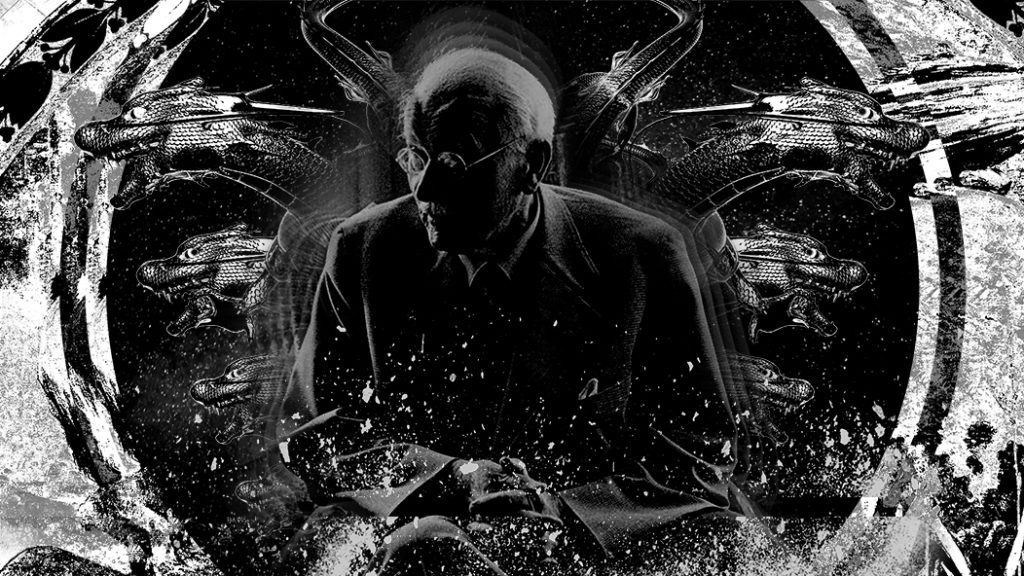
‘Until you make the unconscious conscious, it will direct your life and you will call it fate.’
Carl Jung
Picking Jung’s brain is a humbling exercise. The man’s understanding of human nature was so profound and complex – reading him is a full-on psychedelic experience.
Jung was erudite. His mind could easily cruise through thousands of years of history and pick up the overarching patterns of our collective unconscious. (A term he coined.)
But he didn’t rest on his vast education alone.
The Swiss clinician made his most profound discoveries in his therapy room. On the front line where consciousness wrestles with the unconscious.
His insights formed through decades of work with people who suffered immensely from emotional, psychological – and ultimately spiritual pain.
In short, when it comes to the life journey of the human spirit – Carl Jung knew his shit.
Jung’s writing is overabundant with insights about life, but certain central themes reappear again and again.
These are the most profound of his insights, which says a lot, considering he’s among the most profound intellects that ever lived.
Among all these deep truths Jung discovered, one rules supreme.
The wisdom of wholeness.
Wholeness
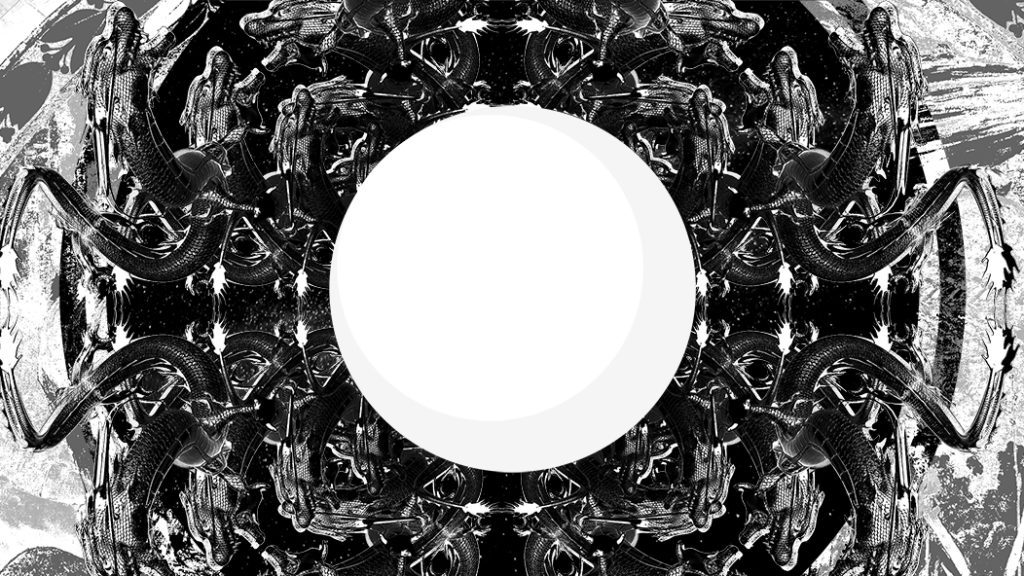
‘You know, I once knew a woman who looked like you / She wanted a whole man, not just a half…’
Bob Dylan, A Sweetheart Like You
For decades, Carl Jung had been observing certain patterns in his patients’ lives, particularly of those who had managed to overcome their existential crises.
To his surprise, these patients had not achieved inner growth by overpowering the dark side of their psyche.
On the contrary, they had only become free of their suffering after relaxing their conscious efforts and accepting their unconscious nature.
Jung struggled with putting this phenomenon into words for a long time.
None of the spiritual traditions he was aware of provided a good model for what he saw happening to his patients.
But then he discovered the wisdom traditions of the East.
Yin and Yang
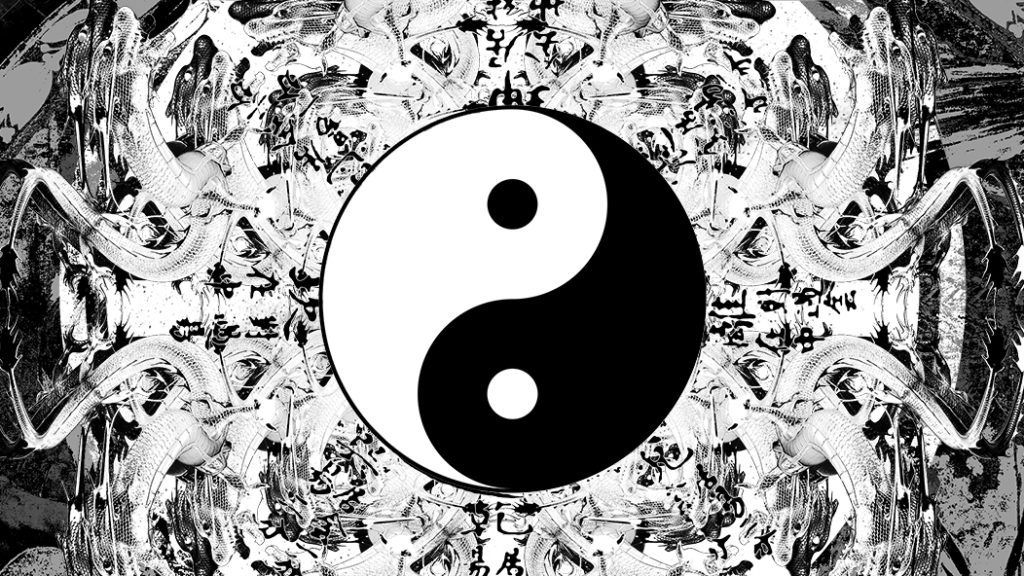
‘Western man seems predominantly extraverted, Eastern man predominantly introverted.
‘The former projects the meaning and considers that it exists in objects; the latter feels the meaning in himself.
‘But the meaning is both within and without.’
Carl Jung
Jung used to write that the disproportionately material development of the West had historically been balanced by the spiritual development of the East.
Indeed, this phenomenon of one half balancing another became a central theme of his work.
The psychotherapist saw this motif run throughout the whole architecture of reality like a fractal.
From the small scale (the human spirit) to the large (the Universe).
The insight that all of Being manifests in pairs of opposites took a long time forming in Jung’s mind. But when he discovered Taoism, his intuition was confirmed.
With the unmistakable eastern blend of depth and simplicity, a short sentence from the Taoist scripture Tao Te Ching struck Jung as one of the most profound statements he’d ever encountered:
‘High Rests On Low.’
These four words by the Chinese sage Lao Tzu proved the turning point for Jung’s understanding of life.
Pas De Deux
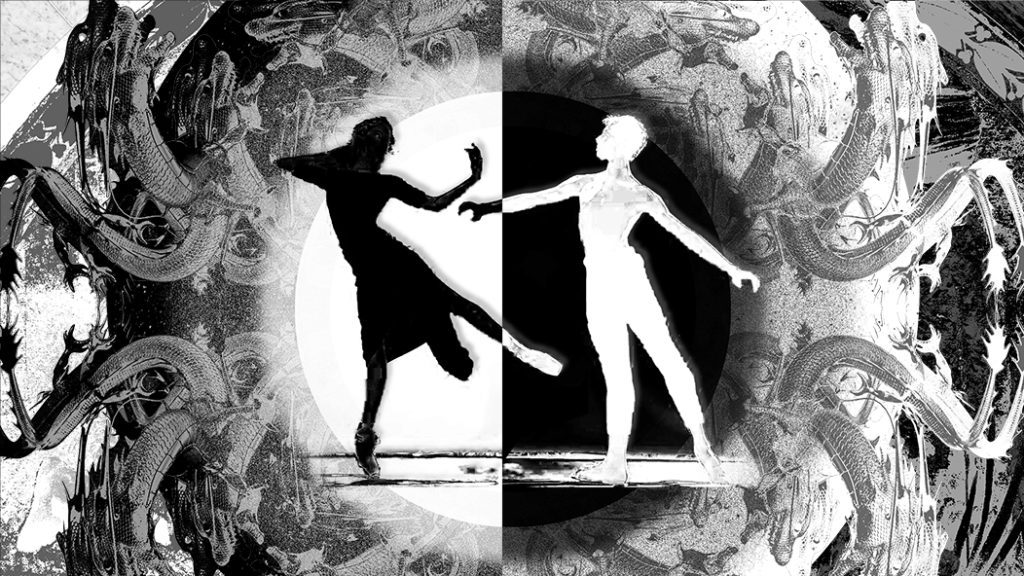
Carl Jung understood that, in contrasting each other, opposites lend each other reality.
Being arises from the interaction of polar extremes.
Self and other, life and death, masculine and feminine, light and darkness… these are adversaries only superficially.
At the deepest level, they form one wholeness: a self-regulated system in which opposing poles coexist in perfect harmony.
As Jung put it: ‘No tree, it is said, can grow to heaven unless its roots reach down to hell.’
The only way for wholeness to grow is through the simultaneous growth of all its parts.
As the tree’s branches rise, its roots must deepen.
On a personal level, this reveals one of the deepest lessons seekers can learn.
The Good, The Bad, And The Whole
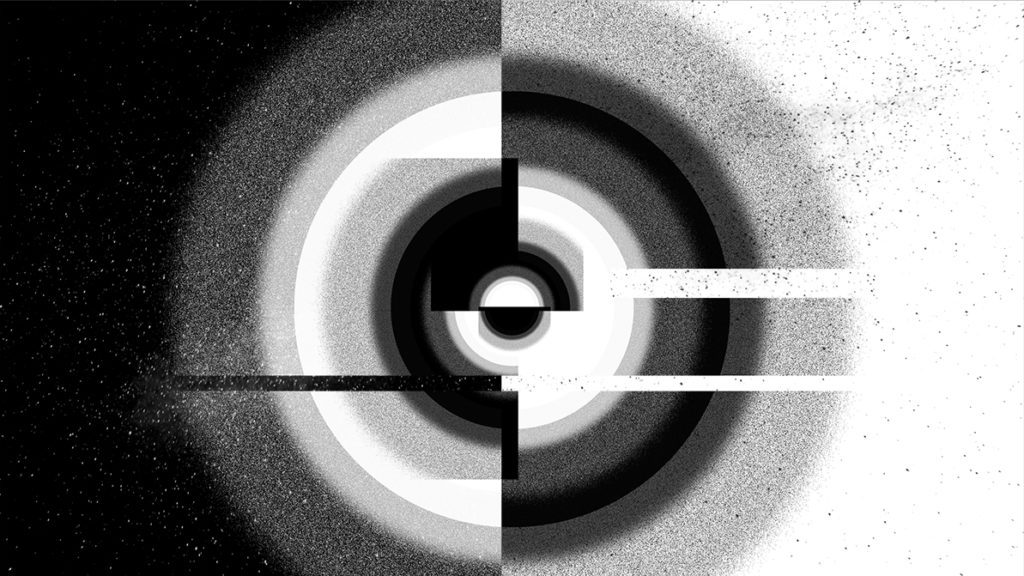
‘Then Jesus said to them, “Give back to Caesar what is Caesar’s and to God what is God’s.”‘
Mark 12:17
Returning to Jung’s clinical practice – the psychotherapist had discovered that the suffering of nearly all his patients was rooted in one common mistake.
Prejudice against the unconscious.
Jung was quick to warn that no matter how universal human nature is, we all come with our cultural baggage. Even when we’re not aware of it.
And since ancient times, the West has been developing an unhealthy cult of consciousness.
You can see this in our great spiritual export, the Judeo-Christian tradition.
There, the masculine principle (yang), the principle of light, order, thinking, and consciousness reigns supreme.
It manifests in our Divine Father, His Son, and the Holy Spirit – all of which we symbolize through light imagery.
This has come at the cost of the feminine principle (yin), the principle of darkness, chaos, feeling, and the unconscious.
You can measure whether you hold this prejudice by how much ‘darkness’, ‘chaos’, and ‘unconscious’ have a negative connotation for you.
Globally, our obsession with yang is the root of our drive to conquer the world through thinking – or science. And our disregard for yin is most apparent in our unhealthy neglect of nature.
But this unbalanced view of existence affects us personally as well. And it leads us to dangerous misconceptions about personal development.
The Tyranny Of Consciousness
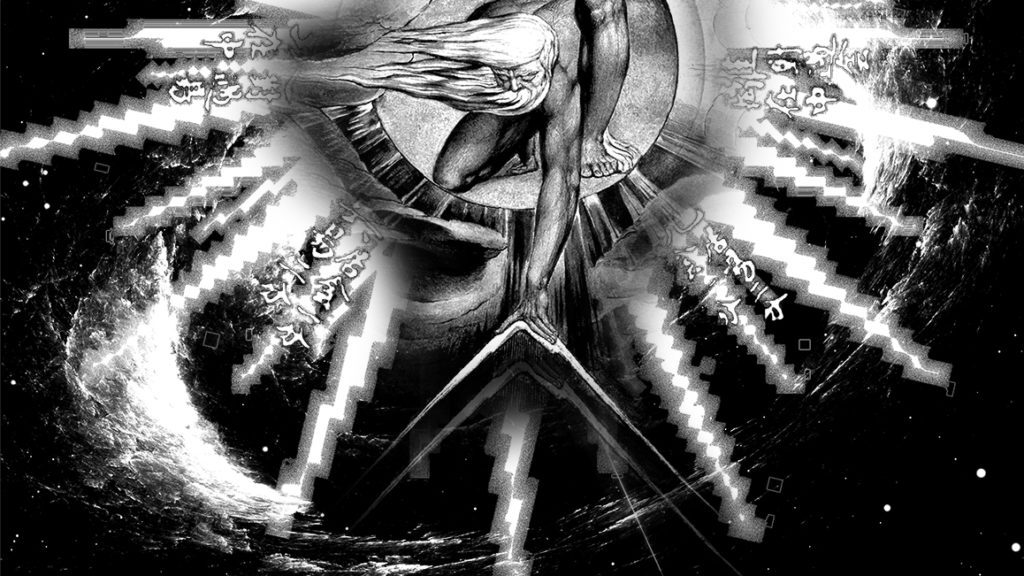
’When yang [light] has reached its peak, at its core the dark force of yin [darkness] is born – because night always begins at noontime – yang falls away and turns into yin.’
Carl Jung
If we make it our spiritual aim to increase light and extinguish darkness – we are setting ourselves up for trouble.
Carl Jung’s most deeply suffering patients had been brought to their knees by just this kind of thinking.
These were otherwise intelligent, ambitious, and successful individuals. But their determination to nurture consciousness while starving the unconscious had led them to the brink of psychosis.
Jung warns us against the easy mistake of believing we alone are the masters of our thoughts, our actions, and our fate.
This delusion can make us approach life like something that must bend to our will. We make plans, expend great effort, force ourselves to follow strict rules about how we should act – who we should be.
And maybe this works for us… for a while.
Sooner or later, a deep-rooted uneasiness stirs within us. Despite our best efforts, things somehow don’t work out the way we want them to.
Though we keep doing everything we think should bring us peace and happiness – we feel anxious and miserable.
Usually, we ignore this.
We tell ourselves we’ve ‘just hit a rough patch’. That it will pass away.
In truth, what we’re experiencing then is our unconscious calling for attention.
If we keep ignoring such calls, they become louder and more violent.
In extreme cases, even physical illness can arise due to persistent disregard of the unconscious. All too often, people fall ill due to their obsessive disregard of their spirit.
Illness is then a measure the unconscious takes to remind us to slow down, examine our life, and see where we’ve gone wrong.
And if we’re wise enough to listen, we find something else inside us.
Something that has so far brought us pain – but holds the potential for true inner growth.
Yin and Yang (Continued)
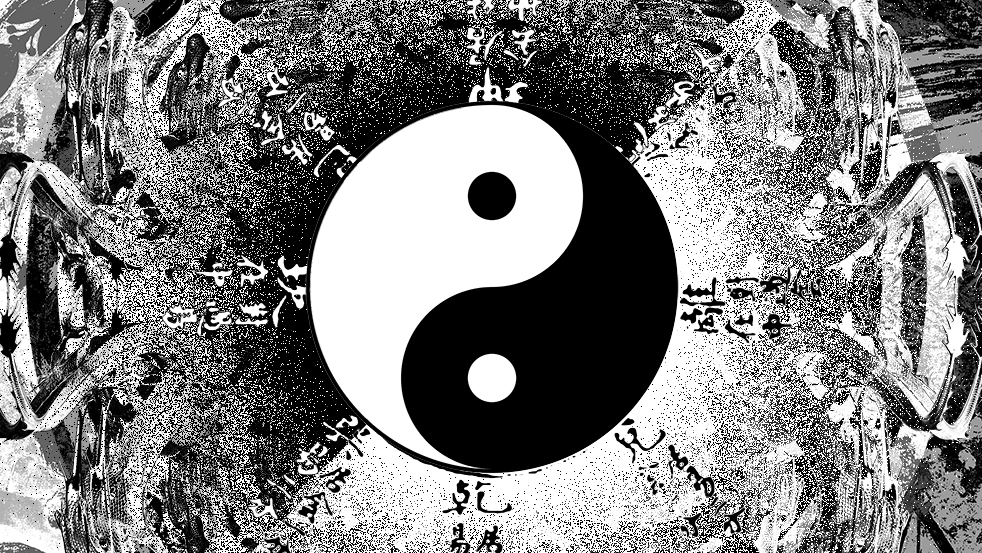
‘Perhaps our eyes will open to spirit if we follow the law of the earth.’
Carl Jung
The unconscious is the ocean of darkness in which the glimmer of consciousness is born.
While consciousness is focused, controlling, and reaches for the heights – the unconscious is vast, passive, and sinks to the depths.
The unconscious speaks in symbols, dreams, and hunches. It is obscure but in tune with our feelings and emotions.
Like fertile soil – it’s the chaos out of which order emerges.
The Self, as Carl Jung saw it, can be neither reduced to consciousness nor the unconscious. It’s rather what arises from the dance between the two.
In the Taijitu symbol, the white element yang and the black yin spin around and give birth to each other. This represents the Self – a child of both light and darkness.
A child that can only mature by honoring both its lineages.
Learning To Sail
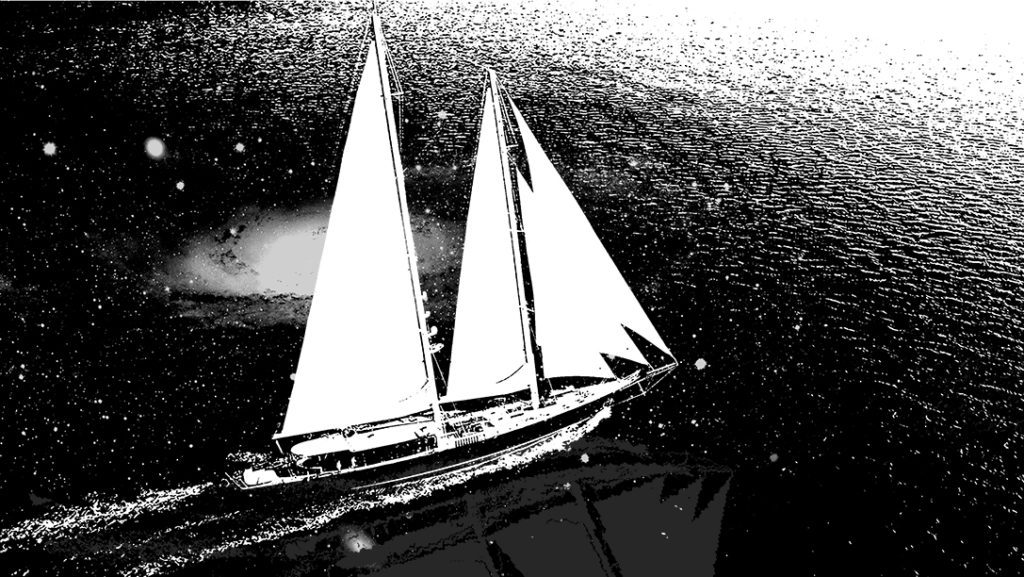
Jung discovered those of his patients who managed to heal their spirit were those who were able to look their dark nature in the face.
This means realizing there are hidden processes inside you, physical and psychological needs you don’t understand – but must respect.
It’s an act of relinquishing control. Of listening rather than demanding.
Jung warns us that the idea of ‘heroically’ sacrificing our inner urges for the sake of some ideal of who we should be – is a recipe for a mental breakdown.
A one-sided devotion to consciousness and the light principle yang leads to a deadening of our instincts and a disconnect from life. A drying up of the springs nurturing our spirit.
We become like a tree with malnourished roots and the slightest gale can topple us.
True spiritual growth is the nurturing of the Whole Self, in both its heavenly and earthly aspects.
Instead of suppressing our irrational impulses, we must learn to embrace them with the appropriate care, love, and attention they deserve.
This does not mean abandoning our conscious efforts (which would be another grave mistake), but aligning them to the innate currents of our unconscious.
It’s the difference between rowing and sailing, as Alan Watts puts it.
If we do this right, the unconscious starts working with consciousness, rather than against it.
For Jung, this is the only path to true fulfillment – the state of being fully alive.
Attempting this is the art of living – the highest form of art there is.
Jung explains this new state of equilibrium always turns out different from our expectations. Yet it’s somehow a perfect expression of the totality of our being.
So we might not get what we want in the end – but we do get what’s best for us. We realize our dharma.
This process culminates in the birth of our Christ nature – fully human and fully divine at the same time.
Yin and yang finally unite in perfect harmony.
And we become whole.
Want to learn more about the union of opposites? Have a look at what Jung’s and Nietzsche’s favourite philosopher, Heraclitus, has to say about it.

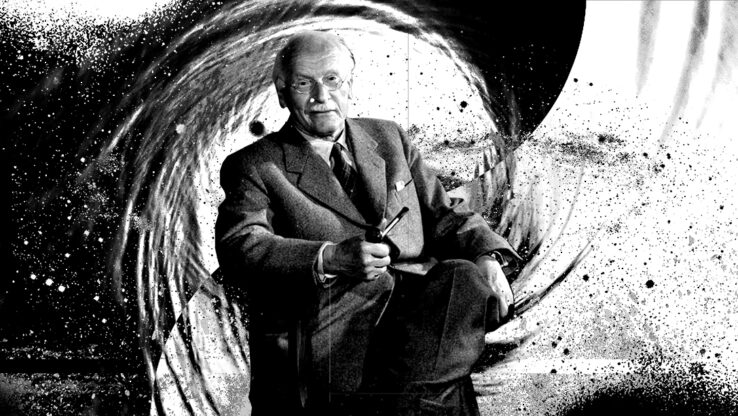

I found your article indeed very interesting to read, having taken an interest in Carl Jung for a while now. However, in your inclusion of the Judeo- Christian concept as light and purity dominant, a more in depth understanding is necessary if you are to provide a succinct argument for the need for a balance and embracing of both ying and yang. I think upon a more critical reading, to establish this counter argument you may find that, the ‘ying’ or darkness is expressed in Judeo-Christian teaching as part of human nature but there is a more dominant spiritual nature that one can choose.
Once again thank you for such an interesting article!
Hey Janniah,
Thank you for your kind words and thoughtful comments!
You are right, if one really goes into the Judeo-Christian tradition, one does find yin. However, as Jung himself pointed out, this doesn’t seem to be as fully integrated as in the East.
For example. Mary, the mother of Christ, has not been given her due place as the feminine element which would complete the trinity into a quaternity.
Jung also argued that Christ ultimately needs the Antichrist, or Satan, to be complete, and this has not been developed fully in Christianity.
So you’re right – it’s not as simple as I portrayed it in the article. Yin does exist in the Judeo-Christian tradition… but again, it has not been given its due respect as in the East.
Hi Simeon,
Thank you for the excellent article! I have enjoyed your content so much. Best wishes to you, as you continue down the path. Thank you for enriching our journeys.
John
Hey John,
Thanks so much for your feedback – it really makes a difference knowing my work brings something to somebody 🙂
I’ll keep releasing the best content I can and I wish you too the best of luck on the beautiful journey we’re on!
Simeon
Thank you, this helped me with some dream analysis.